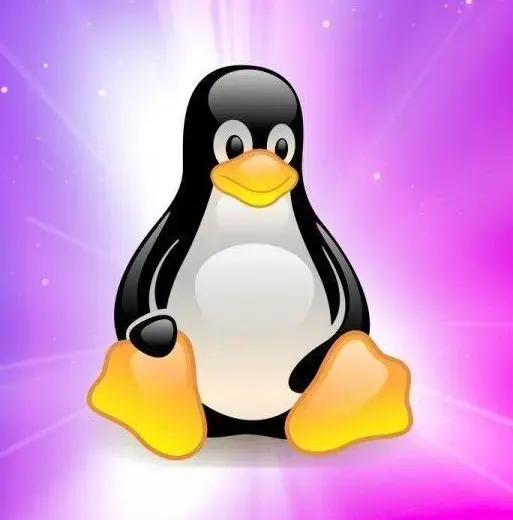learns under legend who thinks micro kernels are the hot shit
is too cheap for Unix
writes monolithic kernel
kernel becomes one of the most successful ones ever
“When I Left You, I Was But The Learner. Now, I Am The Maintainer.”
Wasn’t it the case that whatever he had at home wasn’t supported by UNIX so he rewrote the kernel in order to be able to use it outside of university?
No he did not, he created linux. What you are referring to as linux is actually gnu/linux or as I have recently taken to calling i-
No, Richard, it’s ‘Linux’, not ‘GNU/Linux’. The most important contributions that the FSF made to Linux were the creation of the GPL and the GCC compiler. Those are fine and inspired products. GCC is a monumental achievement and has earned you, RMS, and the Free Software Foundation countless kudos and much appreciation.
Following are some reasons for you to mull over, including some already answered in your FAQ.
One guy, Linus Torvalds, used GCC to make his operating system (yes, Linux is an OS – more on this later). He named it ‘Linux’ with a little help from his friends. Why doesn’t he call it GNU/Linux? Because he wrote it, with more help from his friends, not you. You named your stuff, I named my stuff – including the software I wrote using GCC – and Linus named his stuff. The proper name is Linux because Linus Torvalds says so. Linus has spoken. Accept his authority. To do otherwise is to become a nag. You don’t want to be known as a nag, do you?
(An operating system) != (a distribution). Linux is an operating system. By my definition, an operating system is that software which provides and limits access to hardware resources on a computer. That definition applies whereever you see Linux in use. However, Linux is usually distributed with a collection of utilities and applications to make it easily configurable as a desktop system, a server, a development box, or a graphics workstation, or whatever the user needs. In such a configuration, we have a Linux (based) distribution. Therein lies your strongest argument for the unwieldy title ‘GNU/Linux’ (when said bundled software is largely from the FSF). Go bug the distribution makers on that one. Take your beef to Red Hat, Mandrake, and Slackware. At least there you have an argument. Linux alone is an operating system that can be used in various applications without any GNU software whatsoever. Embedded applications come to mind as an obvious example.
Next, even if we limit the GNU/Linux title to the GNU-based Linux distributions, we run into another obvious problem. XFree86 may well be more important to a particular Linux installation than the sum of all the GNU contributions. More properly, shouldn’t the distribution be called XFree86/Linux? Or, at a minimum, XFree86/GNU/Linux? Of course, it would be rather arbitrary to draw the line there when many other fine contributions go unlisted. Yes, I know you’ve heard this one before. Get used to it. You’ll keep hearing it until you can cleanly counter it.
You seem to like the lines-of-code metric. There are many lines of GNU code in a typical Linux distribution. You seem to suggest that (more LOC) == (more important). However, I submit to you that raw LOC numbers do not directly correlate with importance. I would suggest that clock cycles spent on code is a better metric. For example, if my system spends 90% of its time executing XFree86 code, XFree86 is probably the single most important collection of code on my system. Even if I loaded ten times as many lines of useless bloatware on my system and I never excuted that bloatware, it certainly isn’t more important code than XFree86. Obviously, this metric isn’t perfect either, but LOC really, really sucks. Please refrain from using it ever again in supporting any argument.
Last, I’d like to point out that we Linux and GNU users shouldn’t be fighting among ourselves over naming other people’s software. But what the heck, I’m in a bad mood now. I think I’m feeling sufficiently obnoxious to make the point that GCC is so very famous and, yes, so very useful only because Linux was developed. In a show of proper respect and gratitude, shouldn’t you and everyone refer to GCC as ‘the Linux compiler’? Or at least, ‘Linux GCC’? Seriously, where would your masterpiece be without Linux? Languishing with the HURD?
If there is a moral buried in this rant, maybe it is this:
Be grateful for your abilities and your incredible success and your considerable fame. Continue to use that success and fame for good, not evil. Also, be especially grateful for Linux’ huge contribution to that success. You, RMS, the Free Software Foundation, and GNU software have reached their current high profiles largely on the back of Linux. You have changed the world. Now, go forth and don’t be a nag.
Thanks for listening.
based
I know a guy who loved unix in the 80s. I saved everything he had to buy a SunOS machine at home, since he already had one as a workstation at his dayjob. As soon as Linux was semi-“usable” (we’re talking about the early 90s), he migrated to it.
I know how lucky I am to be a 2000s Linux users. But sometimes, I’m kinda envious of this early generation. For example, with this guy I know, his knowledge of legacy unix APIs is insane…
Early Linux was painful. Hardware compatibility was sketchy. X11 graphics were especially suspect. These are days of CRT monitors, and it was a regular practice you’d have to craft your X Window config files by hand even inputting the refresh rates and specific resolutions your display would support.
Packages and package managers didn’t exist yet. I’d downloaded the (at the time) recent version of Slackware but had trouble getting the compiler working and nearly EVERYTHING required compiling from source. Easy accessible public version controlled source code repos weren’t a thing yet either. You had to go to an FTP site (or BBS) and hope the maintainer labeled the directory structure properly for the code and version you wanted.
I picked up my first commercially purchased copy of Linux (SUSE release 5) because it had 4 CDs of programs/utilities, had YaST, and I found a newsgroup posting detailing part of what I was trying to accomplish at the time, a dual analog modem bonded proxy (Squid!) to provide 128kps dial up internet for my employer (with a 6.8kps download time to users).
Lots of us weren’t running full IP networks at the time. At another employer I ran IPX (file and print for Netware services), Netbeui for Windows peer-to-peer connections, and finally TCP/IP for internet operations (full public IPs on each workstation with no firewall!!!)
but sometimes, I’m kinda envious of this early generation. For example, with this guy I know, his knowledge of legacy unix APIs is insane…
For the dozen things you’ve seen him pull out of his hat that look like magic to you there are a thousand things he knows about long dead technologies and techniques that were simply a requirement of getting through the day back then.
16 years old me had sweaty palms writing those XFree86 config files at first in the early 2000s. I remember all the warnings saying if you screw up this file say goodbye to your monitor, Luckily never happened.
I started with CDs on magazines, my first ones were mandrake 7.2 and suse (can’t remember the version), and later moved to my university’s Linux Users Groups’ Install Fests for CD burning.
Am I incorrect in thinking that most of the OS is actually GNU?
you’re absolutely correct
I’d just like to interject for a moment. What you’re refering to as Linux, is in fact, GNU/Linux, or as I’ve recently taken to calling it, GNU plus Linux. Linux is not an operating system unto itself, but rather another free component of a fully functioning GNU system made useful by the GNU corelibs, shell utilities and vital system components comprising a full OS as defined by POSIX.
Many computer users run a modified version of the GNU system every day, without realizing it. Through a peculiar turn of events, the version of GNU which is widely used today is often called Linux, and many of its users are not aware that it is basically the GNU system, developed by the GNU Project.
There really is a Linux, and these people are using it, but it is just a part of the system they use. Linux is the kernel: the program in the system that allocates the machine’s resources to the other programs that you run. The kernel is an essential part of an operating system, but useless by itself; it can only function in the context of a complete operating system. Linux is normally used in combination with the GNU operating system: the whole system is basically GNU with Linux added, or GNU/Linux. All the so-called Linux distributions are really distributions of GNU/Linux!
Ah you said it, the Linux version of mentioning “Thunderfury, Blessed Blade of the Windseeker”
No, I’m sorry, the GNU / Linux version, I mean.
And then created his own version control system because commercial version control was too expensive.
And then created his own diving tracker software because why not.
someone should point out to Linus how expensive it is to go to the moon, maybe he can figure something out
What a fugging cheapo.
the power of being
poorcareful of your spendingNice attempt at recycling an aged historically inaccurate meme that was on lemmy yesterday
deleted by creator
It certainly required a bit of VIM and vigor…🥁🥁🥁🥁












